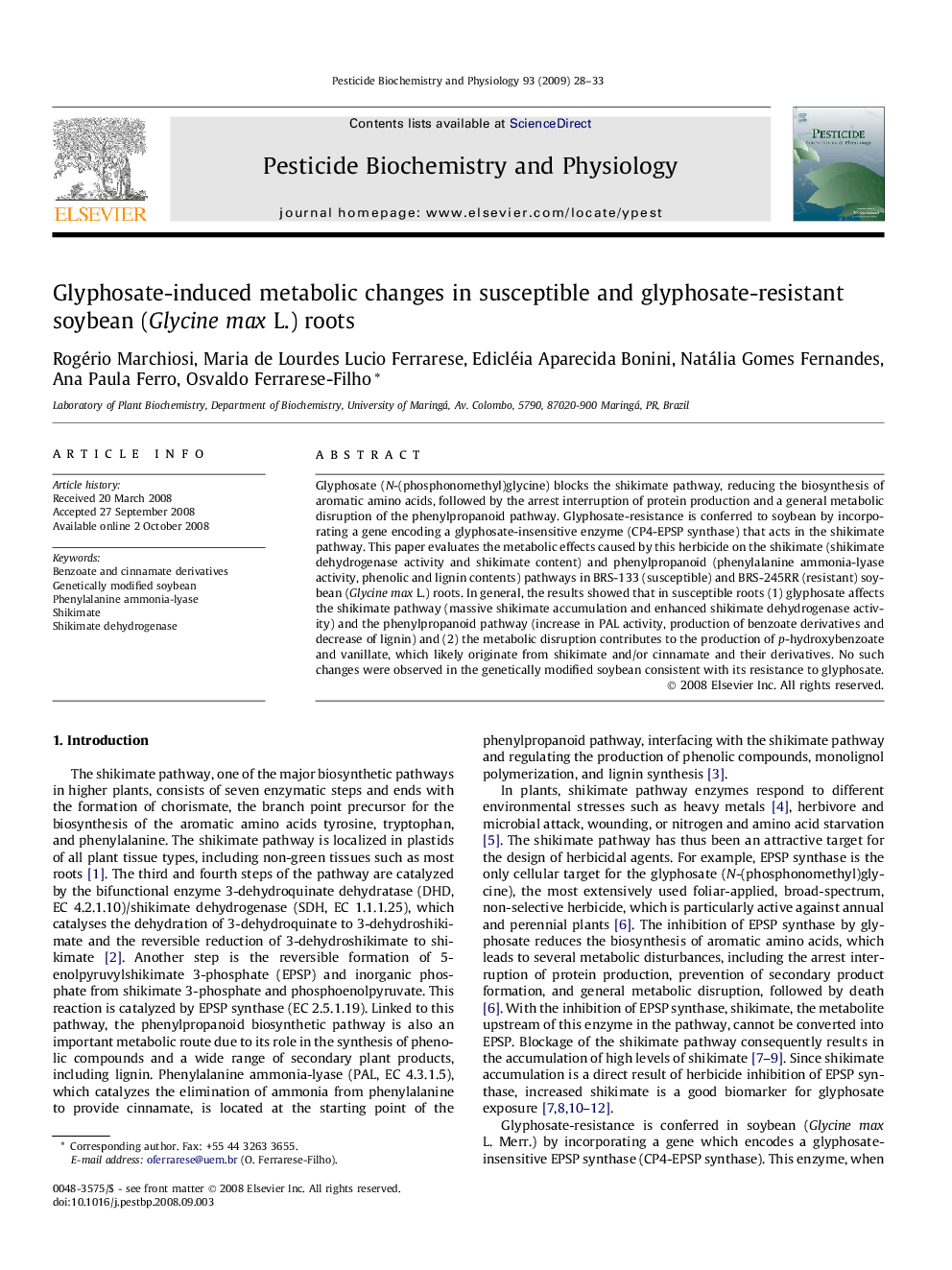| Article ID | Journal | Published Year | Pages | File Type |
|---|---|---|---|---|
| 2009975 | Pesticide Biochemistry and Physiology | 2009 | 6 Pages |
Abstract
Glyphosate (N-(phosphonomethyl)glycine) blocks the shikimate pathway, reducing the biosynthesis of aromatic amino acids, followed by the arrest interruption of protein production and a general metabolic disruption of the phenylpropanoid pathway. Glyphosate-resistance is conferred to soybean by incorporating a gene encoding a glyphosate-insensitive enzyme (CP4-EPSP synthase) that acts in the shikimate pathway. This paper evaluates the metabolic effects caused by this herbicide on the shikimate (shikimate dehydrogenase activity and shikimate content) and phenylpropanoid (phenylalanine ammonia-lyase activity, phenolic and lignin contents) pathways in BRS-133 (susceptible) and BRS-245RR (resistant) soybean (Glycine max L.) roots. In general, the results showed that in susceptible roots (1) glyphosate affects the shikimate pathway (massive shikimate accumulation and enhanced shikimate dehydrogenase activity) and the phenylpropanoid pathway (increase in PAL activity, production of benzoate derivatives and decrease of lignin) and (2) the metabolic disruption contributes to the production of p-hydroxybenzoate and vanillate, which likely originate from shikimate and/or cinnamate and their derivatives. No such changes were observed in the genetically modified soybean consistent with its resistance to glyphosate.
Related Topics
Life Sciences
Agricultural and Biological Sciences
Agronomy and Crop Science
Authors
Rogério Marchiosi, Maria de Lourdes Lucio Ferrarese, Edicléia Aparecida Bonini, Natália Gomes Fernandes, Ana Paula Ferro, Osvaldo Ferrarese-Filho,
